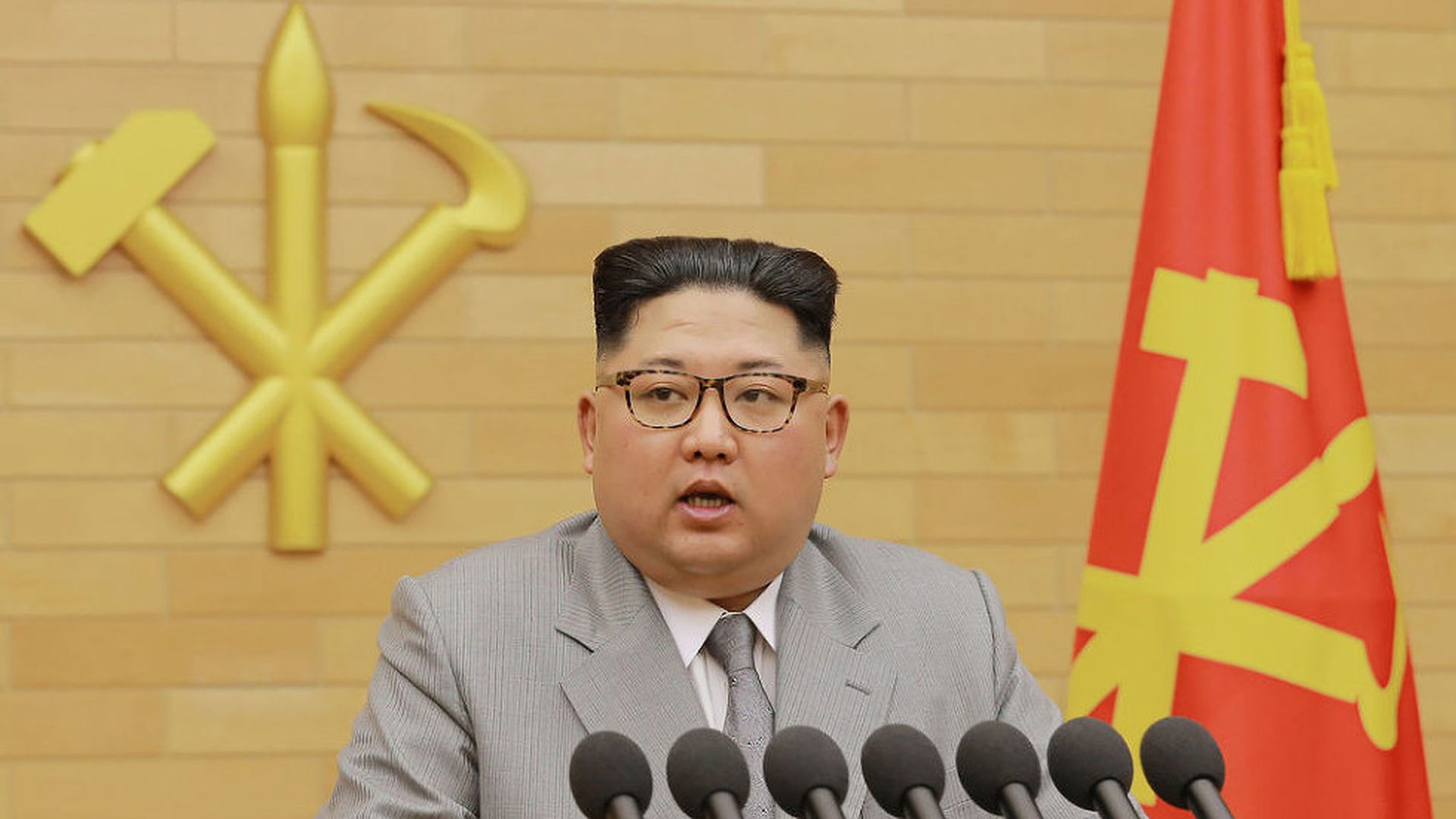Jan 5, 2018 - World
Expert VoicesHow the Winter Olympics are shaping diplomacy with North Korea
Add Axios as your preferred source to
see more of our stories on Google.

Kim Jong-un delivered his 2018 New Year's speech at an undisclosed location, as seen in this picture from North Korea's official Korean Central News Agency. Photo: AFP / KCNA via KNS
